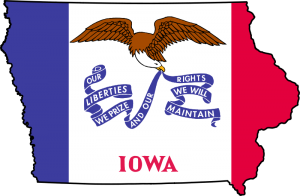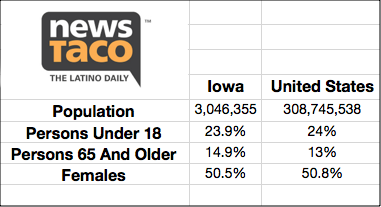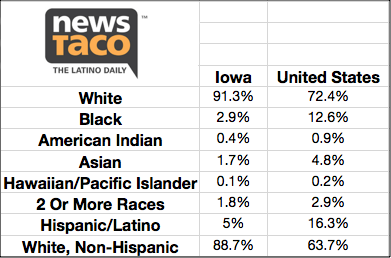Voter Fraud And The Iowa Caucuses Distract Us From Real Issues
 We’re startlingly close to the Iowa caucuses, and even closer to the usual screams of voter fraud from both sides of the aisle — you know, the fear that Mickey Mouse or Tupac might have a say in the presidential election? It’s a reasonable fear that people could use fake names and identities to alter the outcome of presidential elections…Okay, it probably isn’t. The number of individuals and identities you’d need to commit fraud on such a large level and change the outcomes of the presidential elections is ridiculous.
We’re startlingly close to the Iowa caucuses, and even closer to the usual screams of voter fraud from both sides of the aisle — you know, the fear that Mickey Mouse or Tupac might have a say in the presidential election? It’s a reasonable fear that people could use fake names and identities to alter the outcome of presidential elections…Okay, it probably isn’t. The number of individuals and identities you’d need to commit fraud on such a large level and change the outcomes of the presidential elections is ridiculous.
You’d need an organized body that is very geographically spread out — I’m talking an interstate organization, not a church getting together and doing this. These dedicated individuals would have to be willing to risk jail time so their politician could win the election. Nevermind that somebody would be bound to scream and blow the whistle that they were part of a cabal to dramatically alter the outcome of the presidential elections. Imagine the book deals you’d get for being the whistleblower.
So, why all the hub-bub about this voter fraud? An op-ed in The New York Times suggests that it’s to keep college kids from voting. The evidence presented by the piece is interesting, particularly New Hampshire Speaker of the House Bill O’ Brian‘s comments that college students are “voting foolishly… they vote liberal.” O’ Brian goes on to say that students are drowning out local votes. (The comments start at 9:45)
Whoever is starting the conversation, a war between voting demographics is not something that America can afford. Demographics hold bigger role in our election than these student vote stopping attempts that the GOP pulls every year — I mean voter fraud laws, my bad. To show how much of an impact demographics have in the upcoming election, lets take a closer look at Iowa.
“Why the heck does Iowa mean anything in a national election?” I’d make the case that it doesn’t. It’s a small state plopped in the Corn Belt economic region of the U.S., which means it produces a lot in agriculture and it’s home to big land owners — with very low population density as a result. Population data from the 2010 census paints an interesting picture of the state demographics. Here are U.S. and Iowan population stats side by side for 2010:
Now, Iowa generally has similar stats to the United States as you can see. However, Iowa and the U.S. are a different beast racially.
This is a strange physical and demographic difference between Iowa and the rest of America, especially when you consider that the Iowa caucus is the political barometer we use to understand how the rest of the country will vote.
First, the corn belt is not the only region of the United States that votes. An agriculture-intense region having the first words in the national election is not really sensible in a country with an economy that’s service-oriented. There is a massive portion of the economy going unrepresented in such an important part of the election lead up. Second, the racial demographics of Iowa do not accurately at all represent America. Just look at the numbers above.
Efforts to shut out youth voices, as well as the kickoff to the presidential election, both hamper The chances of getting more voices heard in this upcoming election. Students need to fight against laws which are subverting their ability to vote, and people outside of Iowa regardless of occupation, income, or creed, need to yell to get their issues heard. There is very little incentive to listen to the Hispanic student in Ohio, or the Asian-American businesswoman in Iowa, or the African-American dockworker in Oregon. This is everybody’s nation. Make your voice heard and get out there, or you will be ignored for being too small to pay attention to.
[Photo By Fredddie]


